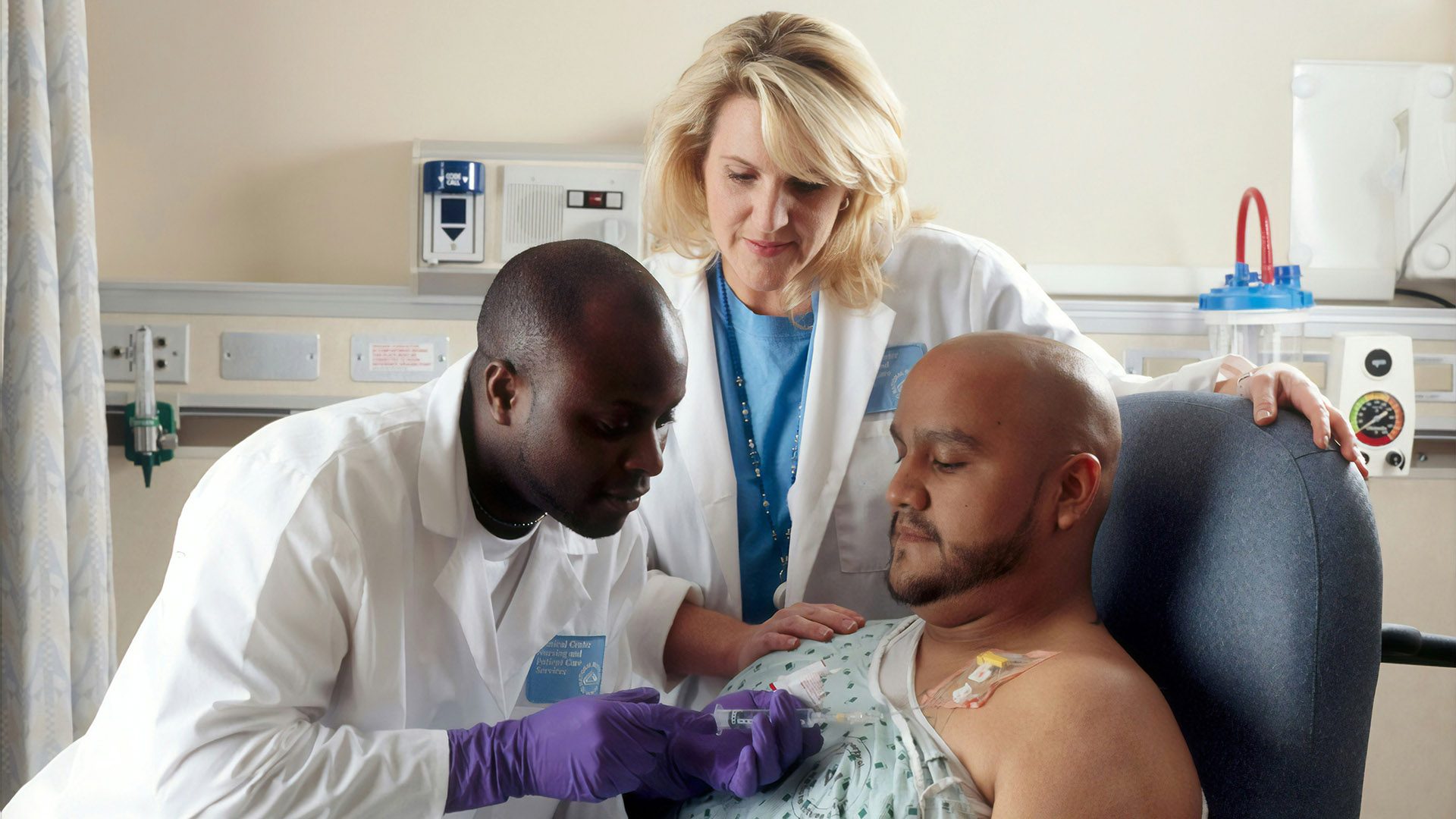Considering Clinical Trials
Clinical trials are scientific studies. They test treatments that are in development. Trials also study other ways of using current treatments. Look into whether a clinical trial could be right for you. Discuss this option with your health care provider as you work together to develop your cancer treatment plan.

Participation in clinical trials isn’t supposed to happen only when there aren’t any other options. You can look into participating in a clinical trial at any time during the cancer treatment process. In some cases, it may not be possible to discontinue a current treatment to start a clinical trial treatment.
Each clinical trial studies a certain type and stage of cancer. The purpose is to learn how well a treatment method works. The study compares the trial method to the current standard or most commonly used treatment. Physicians and researchers monitor patients closely.
Questions to Ask About Clinical Trials
- Who has reviewed and approved this study?
- Has the treatment been used in other clinical trials for my type of cancer? If so, how successful was it?
- What are the short- and long-term benefits?
- What are all of the possible risks and side effects?
- How would side effects be treated?
- Are there other treatment options?
- What are the costs for treatments, tests and other services?
- Will my health insurance or benefit program cover all costs?
- Can I withdraw from the clinical trial once I start?
What Clinical Trials Study:
- Medications.
- Vaccines.
- Surgical methods.
- Radiation therapy treatments.
- Ways of combining treatments.
Each study has its own criteria about who can participate. These may include specific ages, medical history, past treatments or current health status.
How Do Clinical Trials Work?
Patients must always give their permission to be involved in clinical trials. Clinical trials for cancer treatment provide at least the standard of care. Treatment clinical trials are designed to seek better treatment or compare ways to prevent or detect cancer.
Participants in clinical trials are randomly assigned to study groups. This means that a computer program or a table of random numbers is used to assign patients to study groups. This helps avoid biases or preferences that can exist in human choices and beliefs. Biases can weaken study results.
Clinical trial treatments can be given in a health care provider’s office, clinic, cancer center or hospital. These studies occur in steps or phases. A patient might participate in more than one clinical trial during his or her cancer treatment—but only one phase at a time.
Benefits and Risks of Clinical Trials
If you want to be part of a clinical trial, you will be asked to read and sign an informed consent form. This is to make certain that you understand the benefits and risks that are possible.
Possible Benefits:
- The treatment might be available only through the clinical trial.
- The treatment used in the clinical trial could be more effective than the current standard treatment.
- Those in the clinical trial receive regular and careful attention from doctors and other members of the research team.
- Results from the study could help others in the future.
Possible Risks:
- The drugs or treatment being studied are not always better than the standard treatment methods.
- The treatment could cause side effects or risks that doctors do not yet know about or expect.
- If it is a randomized trial, participants are not able to choose whether they will get the trial treatment or the current standard treatment.
- Health insurance and managed care providers might not cover all trial care costs.
Finding Clinical Trials
Before you decide to participate in a clinical trial, talk with your provider and other health care experts. Find out what the purpose of the clinical trial is, as well as who is sponsoring the study.
If a clinical trial is right for you, ask about those that are available locally. Also, ask about those that are occurring outside the area in which you live. If the clinical trial is not offered where you live, you would be required to travel for treatment. Participants might be required to have more visits to the health care provider than they would have for standard treatment.
Talk with your health care team each time you have to make a treatment decision.
If you participate in a clinical trial, find out which expenses your insurer will cover. Ask them to put it in writing before you begin treatments.

